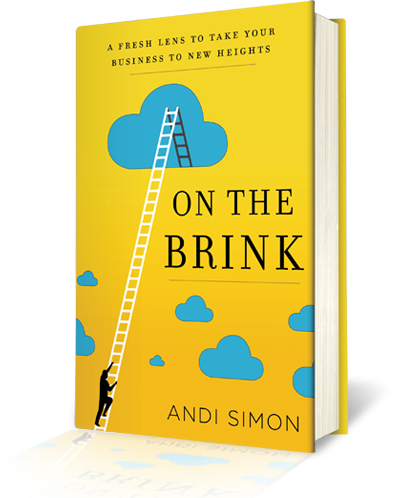Artificial intelligence is not about working faster — it’s about opening up new markets. In this blog, we look at three companies using Blue Ocean Strategy® to do so: Modular, by disrupting hardware lock-in and facilitating AI portability; Artificial Societies, through simulating consumer behavior in virtual markets; and AppZen, via automating finance with AI agents. Collectively, they illustrate how shifting a business’s focus from competing to creating new value can take it out of overcrowded, commodity-driven markets and in to the fertile, untested blue ocean.
In a rapidly changing world of technology, these companies that break away from the pack are not simply competing better by making the same products in overcrowded markets — they’re creating entirely new markets. Through the Blue Ocean Strategy® lens, we are able to observe how forward-looking companies are using artificial intelligence (AI) to unlock new value frontiers, tap into new demand and move away from competitive red oceans. So, let’s unpack how Modular, Artificial Societies and AppZen are creating their own Blue Oceans.
The Modular: Powering the ADM and Breaking AI Portability Hardware Lock-In
The problem in the Red Ocean
For years, companies that wanted to build applications based on AI were locked into one dominant ecosystem: NVIDIA’s CUDA. The shortcoming has resulted in high switching costs, vendor lock-in, and obstacles for chipmakers with lesser resources.
The Blue Ocean Move
Modular is developing an abstraction layer that allows AI workloads to run across various chips without the need for rewriting code. Rather than directly competing with NVIDIA in terms of hardware, Modular changes the game by creating an entirely new market for AI portability. Developers win, semiconductor giants get customers and enterprises lower their risk.
The New Value Proposition
By redefining the problem — not “faster chips,” but “freedom of choice” — Modular has built a market where none existed. That’s right, it’s a classic Blue Ocean: Pain points turned opportunity, targeting non-customers who shunned AI on account of lock-in and complexity. And that’s what this approach of re-framing problems should teach you: the power of imaginative thinking.
Artificial Societies: An Agent Based Approach to the Modeling of Social Life—Simulating Consumer Behavior in a Virtual Market place
The Red Ocean Challenge
Conventional market research is costly and slow,” the partners wrote in an email, “and it often uses surveys or focus groups that are not a true reflection of how people actually behave. Companies were left with the choice of either spending heavily or flying blind.
The Blue Ocean Move
Agent-Based and Multi-Agent Systems is where AI agents are used to model or simulate human interactions/behaviour. Picture experimenting with how consumers might react to a new brand, product or campaign — not in the confines of a lab or survey, but within a virtual society.
The New Value Proposition
AI now unlocks a brand new space: companies can test markets before launching, eliminate expensive errors and iterate rapidly. Artificial societies aren’t just making market research better; they’re creating an entirely new category of it — predictive consumer simulation.
AppZen: AI Agents that Automate Finance
The problem in the Red Ocean
For years, finance teams have depended on armies of staff to pore over expenses, ensure compliance, handle audits. Manual operations are time-consuming, error-prone and expensive. Competitors were all after the same incremental efficiency gains—cheaper outsourcing, faster workflows.
The Blue Ocean Move
AppZen developed a platform based on AI to automate these processes, in effect taking over the job of expense audits and compliance from a human one to an autonomous finance agent. Rather than competing on labor efficiency, it built a market where policing and audit are active, real-time and scalable.
The New Value Proposition
The company flipped the definition of value: instead of “how many people do you have to audit,” it became “how much risk and cost can you eliminate before it even happens. It is that shift in demand that creates an entirely new one, especially for companies which never had the funds or need for full-scale audit or compliance oversight.
What We Learn From These Blue Oceans
Here is how each company exemplifies the power of reframing markets, and finding their Blue Oceans
Modular shifts the battle from “better chips” to “freedom from lock-in. Artificial Societies moves from “expensive surveys” to “virtual market simulations”. AppZen moves from “manual auditing” to “autonomous compliance.”
Instead of fighting it out with a product for some share of existing demand (remember the old strategic directive), they are creating unchartered space, capturing new consumers and designing new categories–Blue Ocean thinking at its core.
That’s the essence of Blue Ocean Strategy—to have the imagination, technology and courage to sail into new waters. These companies’ audacious moves should motivate you to think big and carve out your own Blue Ocean.
The lesson for leaders? Don’t simply ask how A.I. can help you compete more effectively. Ask how it can help you to stop competing and start creating new value, new markets and new futures. Be excited about what AI can unlock in terms of new markets.
You might also enjoy our white paper: https://www.simonassociates.net/wp-content/uploads/2023/11/White-paper-10-Ways-To-Avoid-Red-Oceans.pdf
- Check out our blog with our podcasts at www.SimonAssociates.net/podcast
- Subscribe on Apple, Spotify, or your favorite platform
- Listen to the episodes that speak to you
- Review us — your feedback helps us grow
- Share with a friend or colleague who’s ready to think differently
- And read our book, ““On the Brink: A fresh lens to take your business to new heights.”
We’re just getting started. Thank you for being part of this incredible journey.
Here’s to seeing, feeling, and thinking in bold, new ways — together.
#OnTheBrink #PodcastForChange #SeeFeelThink #WomenInBusiness #InnovationLeadership





